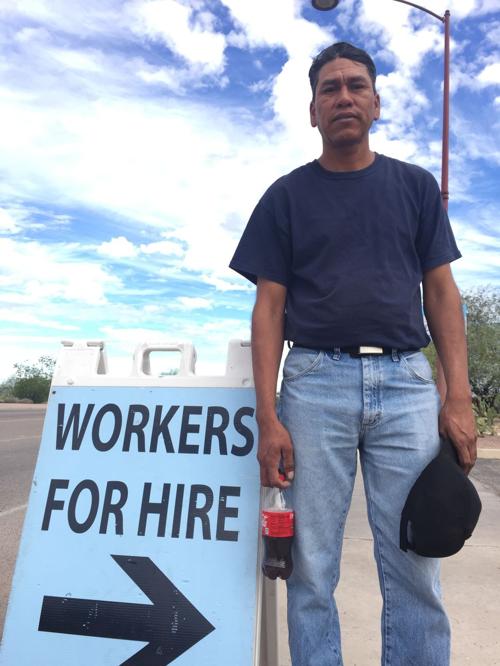Four years ago, while driving to a job with a couple of other workers, Narciso Valenzuela got lost near Three Points, on the road to Sells. That’s when the Border Patrol agents stopped them.
In short order, Valenzuela and his companions were accused of being drug smuggling mules and they were taken to the U.S. Border Patrol station on East Golf Links Road. There they were interrogated and were ordered to sign their self-deportation papers.
Valenzuela refused and he counseled his worker buddies not to sign.
“I have family here and have lived here for many years,” he recalled telling immigration officers. “I have rights to appeal and to legal representation.”
His story doesn’t end there and we’ll get to it later in the column.
When Valenzuela asserted his rights, he was putting into practice lessons he had learned at the Southside Worker Center, a place where jornaleros, day laborers, safely congregate while waiting to be hired. The center, which is affiliated with the Southside Presbyterian Church at South 10th Avenue and West 23rd Street, is also a place where the workers have organized, have received — and given — lessons on civil and legal rights, and have lent their time as immigrant advocates.
Last weekend the workers and their allies celebrated 10 years.
It’s been a decade of struggle for the mostly undocumented immigrants who, in the face of rejection and adversity, have managed to maintain their dignity and self-respect. These workers who have risk everything, have shown their strength and the ethic of hard work and dedication to their cause. They take menial, physically demanding jobs so that they can pay rent and buy food for themselves and their families.
We could learn something valuable from them.
The worker center started with a card table under a mesquite tree on the church’s parking lot. For many years in that blue-collar neighborhood of Mexican immigrants, Mexican-American, Yaqui and Tohono O’odham families, day laborers were hired off the street. But over time the presence of the workers waiting at corners and commercial establishments, created conflicts with residents.
The conflicts led to increasing calls to police and Border Patrol. This motivated the church, police and city officials to find a solution. In the fall of 2006 a card table was unfolded. The center slowly developed, finding its footing. When SB1070, the punitive state law aimed at undocumented immigrants, was signed in 2010, life changed for many of the workers.
Some jornaleros left, but many stayed. Those who remained organized a protection network to fight deportation. They learned leadership and organizing skills. They learned they had rights despite SB 1070.
The workers also realized they had strength, regardless of their legal status. Several times when workers were detained by police or immigration officers, the network kicked in.
In one high profile incident three years ago, a traffic stop turned into an immigration check. The network sent out a call that resulted in anti-SB 1070 activists forming a human chain around a Border Patrol vehicle. The incident escalated and several activists were detained. The workers understood they no longer had to bow.
“We lost our fear,” said Valenzuela, who was born in a Yaqui community in southern Sonora and came to Tucson nearly 20 years ago. He and his wife have three children.
When Valenzuela was in Border Patrol detention and refused to surrender his rights, he was sent to the privately operated immigration detention facility in Eloy. He was released a week later when workers and supporters paid his bond.
He now has a work permit. Valenzuela, 40, works part-time at a grocery story and continues to work as a jornlaero. And he continues to keep in mind what he told the Border Patrol agent the day he was stopped:
“I did not cross the border. The border crossed me. I told him I am Yaqui and that I have rights as an indigenous person and a resident of Arizona.”





